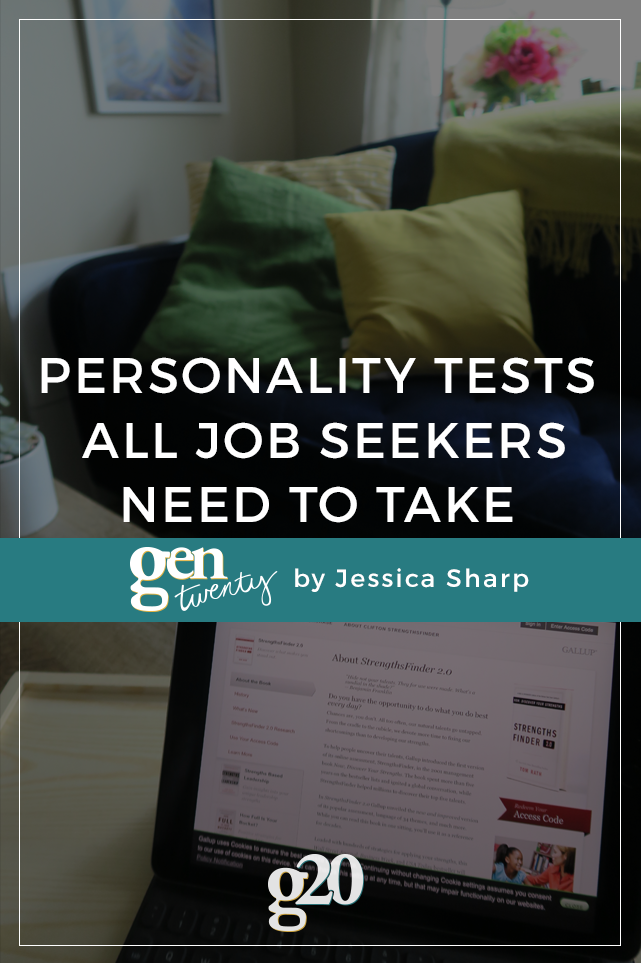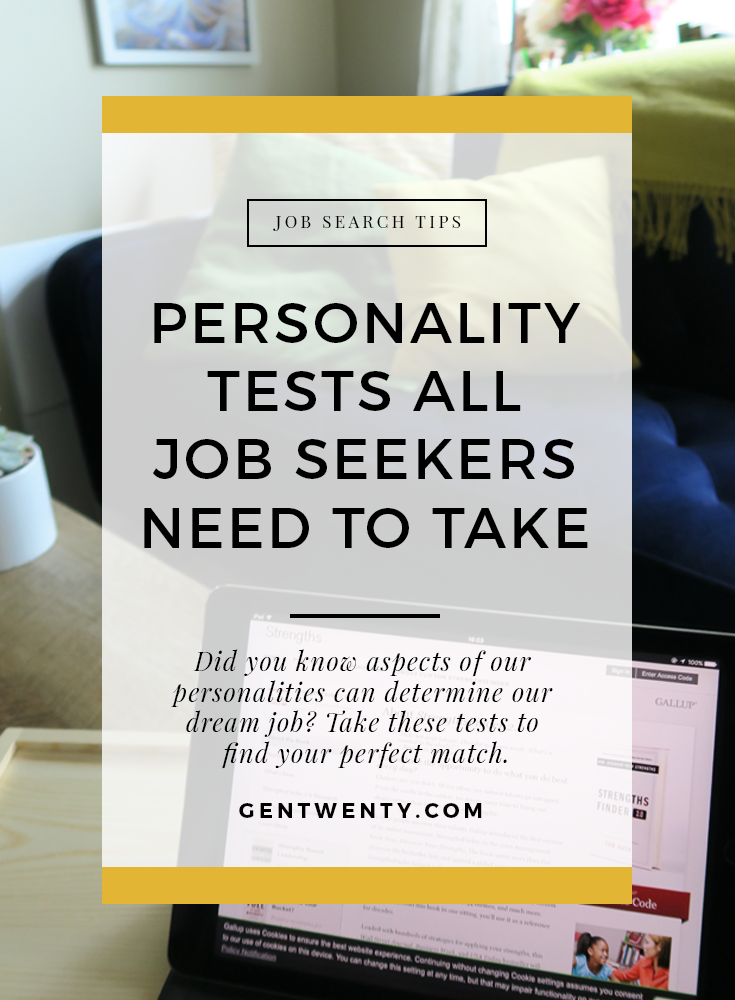
I have to admit, I am a bit obsessed with personality tests. In my opinion, they are a great way to learn more about yourself, and to be reminded of some of your good and not so good qualities. According to Life Reimagined (which is one of my favorite websites), personality assessments “cover a lot of ground, but all aim to identify your strengths, weaknesses, temperament, and your style of leadership.”
Personality tests, such as the popular ‘disc test,’ can also help you to determine what your dream job should be. The article I referenced earlier discusses the benefits of personality tests for job seekers. It makes the point that understanding your strengths, transferable skills, and what you are good at will help remind you of what you love to do.
As a bonus? They can also help you articulate your strengths to a potential employer. The Life Reimagined article says, “For job seekers, knowing your personality strengths can help you improve (or avoid your weaknesses) and help you present your abilities to employers. Self-awareness can help you tell your story in interviews.”
There are a lot of tests out there, but I have given you some information on the two (yes, only two) that I think are best to help us with career exploration.
Two Personality Tests All Job Seekers Need to Take
Myers Briggs
Myers Briggs is a personality test most people have heard of and probably taken. Inspired by the Swiss psychiatrist Carl Jung, Katharine Briggs and her daughter Isabel Briggs Myers developed the Myers Briggs test in 1943. Isabel was driven by the desire to understand how people are different from one another and to help people understand themselves better.
The Myers & Briggs Foundation describes the four aspects of the tests:
- Favorite world: Do you prefer to focus on the outer world or on your own inner world? This is called Extraversion (E) or Introversion (I). Another way to think about introversion versus extraversion is energy- does your energy come from others or spending time alone?
- Information: Do you prefer to focus on the basic information you take in or do you prefer to interpret and add meaning? This is called Sensing (S) or Intuition (N).
- Decisions: When making decisions, do you prefer to first look at logic and consistency or first look at the people and special circumstances? This is called Thinking (T) or Feeling (F).
- Structure: In dealing with the outside world, do you prefer to get things decided or do you prefer to stay open to new information and options? This is called Judging (J) or Perceiving (P).
The preferences in each category come together to describe each of the 16 personality types.
My favorite Myers Briggs site is 16 Personalities. This site has a free assessment and has loads of information on each personality type, including ideal career paths.
[Tweet “Two Personality Tests All Job Seekers Need to Take”]

StrengthsFinder
StrengthsFinder through Gallup is my all time favorite assessment. In an attempt to help people uncover their talents, Gallup created the StrengthsFinder assessment in 2001. They have since created a more improved version that they call version 2.0. The assessment has 34 themes or strengths. Gallup defines a strength as “the ability to consistently provide near-perfect performance in a specific activity.”
To find out your top five strengths, you have to pay for an online assessment (you can also purchase the book and there will be a code inside). Yes, there is a cost associated with this assessment, but it is well worth it. The test will give you your top five strengths in order (if you want all 34 in order, you can pay for that, but I haven’t).
According to the website, this is why they only provide the top five: “The purpose of the Clifton StrengthsFinder is to start you on the path to strengths by helping you discover your most dominant talents. The Clifton StrengthsFinder measures the presence of talents in 34 areas, or “themes,” but only reveals your top five themes in order to provide focus on your most dominant talents.”
Unlike Myers Briggs that will have millions of people with the same type, it is unlikely that you will have the same top 5 strengths in the same order as someone else, so this test gives you pretty unique results. Once you have taken the assessment, I would encourage you to check out two websites to find out more about how your results can help you with your career search:

In general, personality assessments will help you to identify your skills and weaknesses which will help you decide what type of job is best for you. I would recommend doing some soul searching to find out what your passions are and try to align them with your personality test results. This will allow you to really decide what kind of job you will thrive in.
Is there a different personality test you have taken? Is there something you have learned about yourself from these assessments? Let us know!
More Career Posts You’ll Like:
- 12 Ultra-Inspiring Examples of Long Term Career Goals
- The 15 Best Books For Career Development To Advance
- 20 Best Careers For A Virgo Woman
- 10 Non-Medical Careers In Healthcare
- 50 Ultra-Inspiring Quotes From Women Entrepreneurs
- 5 Must-Follow Tips To Make a Career Pivot… and The Best Free Job Site To Use
- 5 Easy Steps For Career Planning In Your Twenties
- 50 Examples and Ideas For Professional Development Goals
- 40 Epic Workplace Contest Ideas to Engage Your Team
- 25 Best Paying Part-Time Jobs for College Students For Extra Money
- 7 Ways for Young Professionals to Get Involved
- What to Do When You Have More Than One Passion
- Two Personality Tests All Job Seekers Need to Take
- 4 Creative Skills to Learn When You’re Ready to Grow Your Career
- 10 Keys to Joy and Success in Your Career
- 5 Tips for Building a Strong Career Foundation in Your Twenties
- The 10 Areas of Professional Development
- 12 Ultra-Inspiring Examples of Long Term Career Goals
